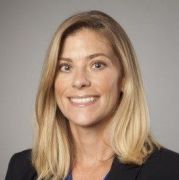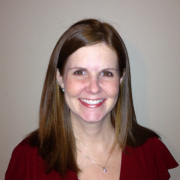Written by Nevella Paul, PMP
PMI Atlanta Healthcare March forum attendees enjoyed a highly interactive and informative presentation on how to overcome obstacles a project manager may face on a daily basis. Our speaker Maxim Nazaire created an energetic atmosphere through reciprocal conversation and practical exercises.
 Maxim “Max” Nazaire is a Wellness Expert who specializes in double digit weight loss, injury rehabilitation and athletic/human performance. He has been featured on CNN Headline News as their go to health contributor where he shares his easy to use workout programs with television viewers all over the world. Max is an author of two critically-acclaimed books including his latest book Life, Liberty and the Pursuit of Wellness.
Maxim “Max” Nazaire is a Wellness Expert who specializes in double digit weight loss, injury rehabilitation and athletic/human performance. He has been featured on CNN Headline News as their go to health contributor where he shares his easy to use workout programs with television viewers all over the world. Max is an author of two critically-acclaimed books including his latest book Life, Liberty and the Pursuit of Wellness.
Max opened his presentation by sharing a few challenges project managers may face on a daily basis such as, juggling multiple projects, the struggle to meet impossible deadline, budget restraints and communication barriers. Many of the attendees related to these challenges and openly shared their desire to overcome them.
Max presented the “2 millimeter difference concept” where he illustrated how this small shift can lead a project to success or failure. He emphasized the need to be precise versus accurate. Being precise displays consistent execution and a level of understanding of the task. He stressed the importance to adapt and adjust to changes. This is needed to remain competitive and pivot to the demands of an ever-changing environment.
Next, he led the attendees in role play exercise to improve alertness, energy levels and communication to create a positive first impression. These exercises allow one to experience two types of interactions (1) with an energetic, enthused, confident individual and (2) with a dull, shy and distant individual. The practical exercise gave a good visual understanding on the type of communication and traits one should display to captive others to gain buy-in or interest in one’s cause.
The next technique Max shared was the Fit2DMax baton method which emphasizes the need to take full responsibility and ownership of the communication process. Max states “it is your responsibility to pass the baton (deliver) your message effectively by seeing it all the way through. Doing this will create action and the interest of others to help you achieve the desired results.
Lastly, the focus was shifted from self-development to helping others maximize their effectiveness through positioning questions such as:
- Do you know what the person needs are?
- Do you know what they want?
- Do you care about their wants and needs?
- Do you know what their strengths or weakness really are?
- Have you positioned them in a situation to maximize their strengths and minimized their weaknesses?
Max ended the presentation with powerful leadership statements and Fitness and Wellness Tips that will move the needle in your life.
Overall, the presentation was packed with great information on verbal and non-verbal communication techniques, quality and strategies to manage the unexpected while staying physically, mentally and psychological fit.
Please join us Wednesday, April 18th from 6:00 p.m. to 8:00 p.m. at the Healthcare Forum for the: Keynote Presentation: “Agile Transformation – The Challenges beyond Adoption presented by Michael Smith, Intellinet Consulting LLC / Principle Consultant
Location: Philips Healthcare
PHA Academy
One Deerfield Centre
13560 Morris Road
Alpharetta, GA 30004



